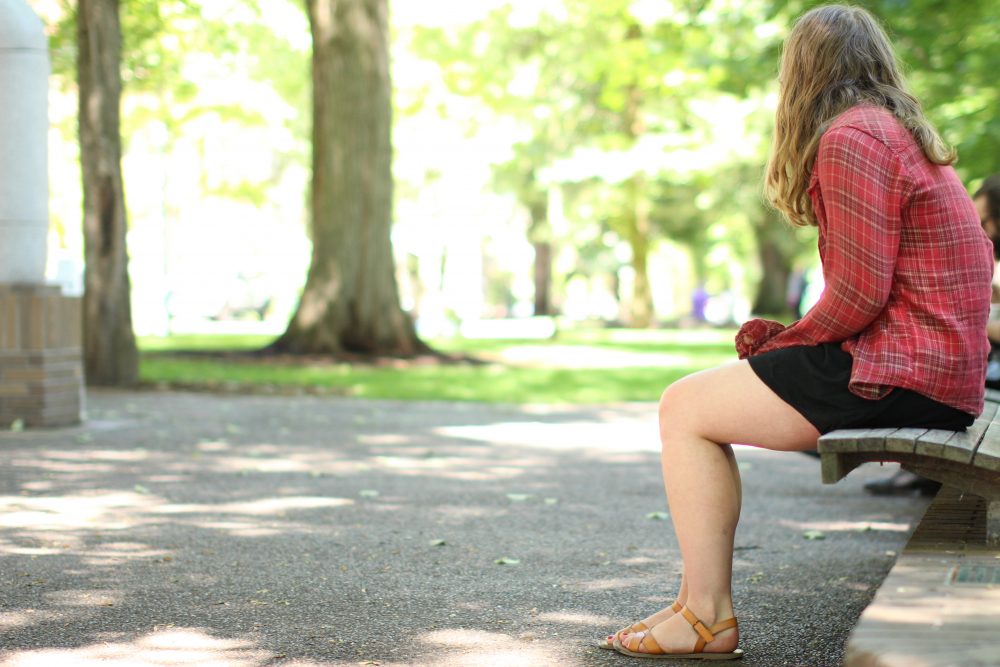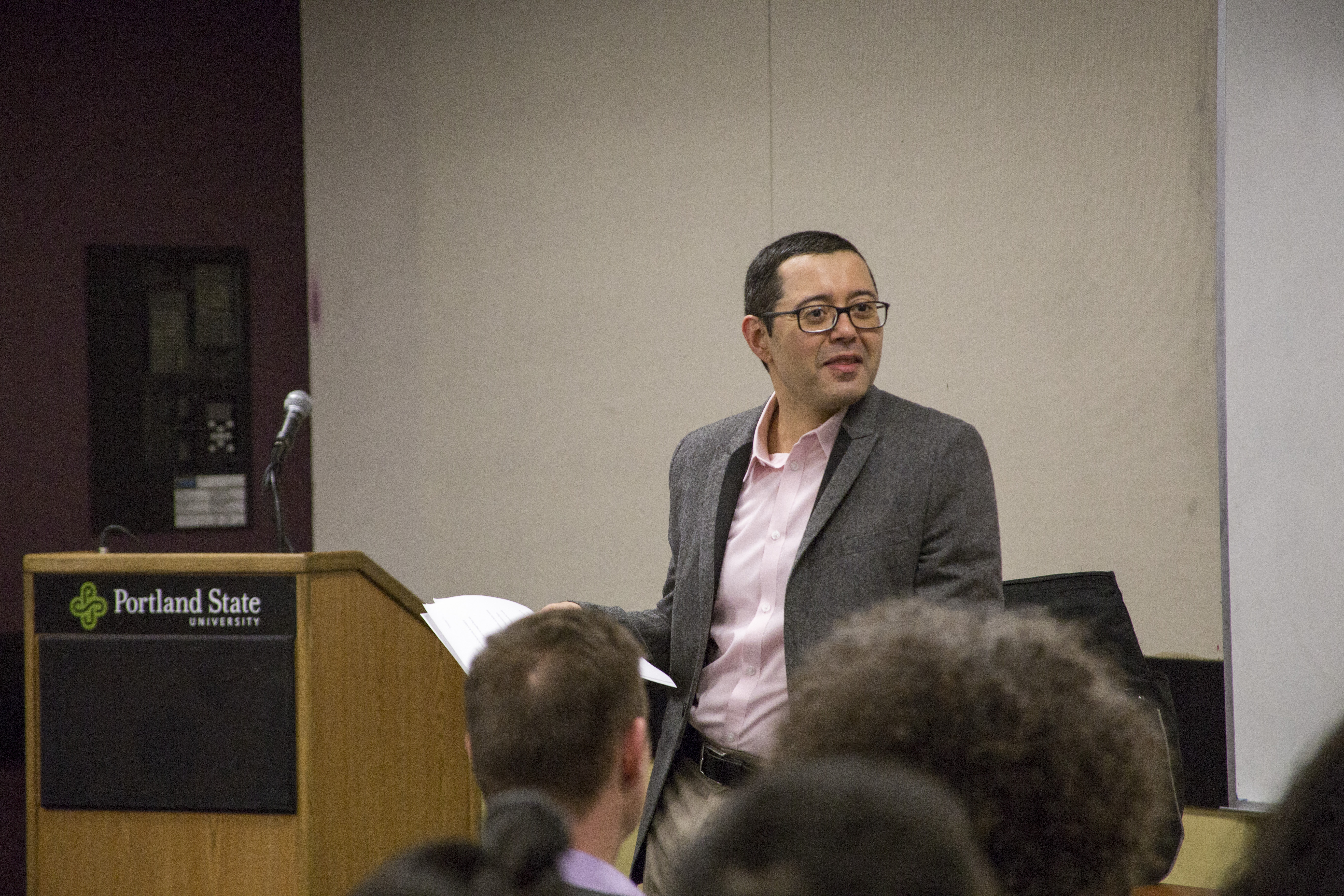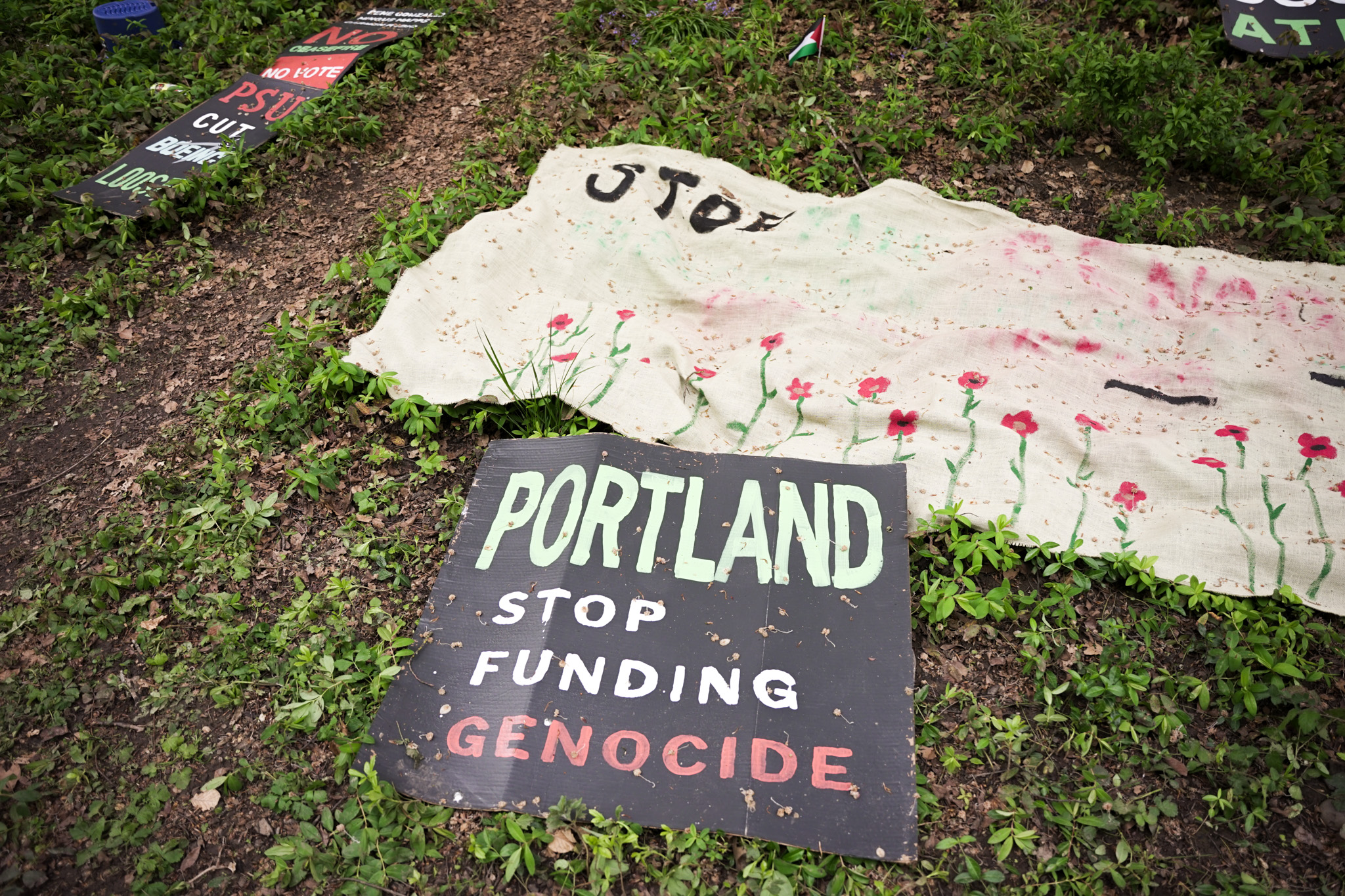Portland State staff led the first of two panel discussions on Wednesday, April 12 in response to the results of PSU’s 2016 Sexual Misconduct Campus Climate Survey.
The survey results were released on the morning of April 4, 2017, in an email sent to the entire university community by PSU President Wim Wiewel. Less than a dozen students attended the event held in the Multicultural Student Center.
The survey stats revealed that 1 in 7 women and almost 1 in 3 trans and non-binary students have experienced sexual violence while enrolled at PSU. While these results are half the national average for women and consistent with the national average for trans and non-binary students, the survey revealed students to be unaware of available resources on campus, and that students felt disconnected from PSU and not in control of their college experience.
According to Julie Caron, the PSU Title IX coordinator, sexual misconduct includes “any non-consensual touching, as well as any non-consensual penetration.”
Included on the panel were Caron, Jessica Le, peer educator at Illuminate PSU, Adrienne Graf, relationship and sexual violence response coordinator at the Women’s Resource Center, Dr. Marcy Hunt, director of counseling services at the Center for Student Health and Counseling, and Craig Leets, director of the Queer Resource Center, among others.
The survey, sent out to over 12,000 of those students enrolled in the Spring 2016 semester, garnered a 19 percent response rate.
“This is consistent with federally recommended college sample sizes,” Caron said. However, the 14 percent male response rate was lower than the university’s target, meaning the 4 percent of men who reported sexual violence while at PSU could be higher.
Caron expressed concern because the survey revealed less than a third of PSU students know about resources on campus for those who have been sexually abused.
“Students are less familiar with interpersonal violence advocacy services and less familiar with the Title IX website,” Caron said. “Which means we need to make people more aware of these resources.”
While 49 percent of students knew how to report sexual misconduct, only 19 percent knew about the Title IX coordinator, 21 percent knew about interpersonal violence advocates or the sexual misconduct web page, and 29 percent knew there are sexual assault nurse examiners at the SHAC.
The Interpersonal Violence Program, located at the Women’s Resource Center, is a confidential service available to students of any gender or orientation. IPV advocates might not only be the first line of response to sexual misconduct reports, but can connect students to other resources such as Student Legal Services, county social services, and law enforcement.
Graf manages the IPV advocates, who also play an important role on campus in advocating for administrative changes and improvements. “This is really about giving empowerment back to the survivor,” Graf said. “It’s about giving a voice and a choice.”
The survey also revealed more than half of sexual misconducts were instigated by non-PSU members. One audience member asked how the university helps the majority of PSU students who live off campus.
Both Graf and Amy Kayon, relationship and sexual violence prevention coordinator at the SHAC, work or have worked in the community before coming to PSU. “I sit on a number of county task forces and boards,” Graf said. “So I know what’s happening on a county level about sexual violence.”
Information about the after-hours Call to Safety line and the Bradley Angle House, which also has a 24/7 line, is available on the IPV program webpage. Graf said PSU has been collaborating with these two agencies to give off-campus PSU students options for support.
IPV is also working with Campus Safety, which has an escorting service that can help bring intoxicated students back to their dorms, to provide amnesty for under-age drinkers that either report or experience sexual violence or other issues needing Campus Safety, law enforcement, or medical response.
Illuminate PSU, a student-led organization, leads workshops independently and in student courses to address consent and bystander intervention, meaning how students intervene as witnesses to troubling behavior.
Workshops also address body image, sexual health, and mental wellness. Like Jessica Le, who started out as a volunteer for Illuminate, any student can work their way up to peer educator status and lead these workshops.
Le said she sees the survey results as further evidence the campus needs to attend workshops and have honest conversations. “Next year we’re planning for these workshops to be mandatory for incoming freshmen,” Le said. “The same will apply to athletic and transfer students. The workshops utilize clicker technology that anonymously surveys students’ feelings and opinions prior to and immediately after participation.”
According to Erica Bestpitch, administrative coordinator for the WRC, 177 students have utilized IPV advocates since September 2016. While the IPV program has been in place since 2001, IPV advocates have only had confidentiality since 2014. Though IPV advocates are held to responsible employee guidelines, similar to mandatory reporting laws, Graf said, “[Confidentiality] marked a different era of our advocacy programming.”
In response to the high rate of trans and non-binary students affected by sexual violence, Caron said, “We are continuing to work with the QRC as well as the community to help respond to that.”
The School of Social Work and the WRC will partner with the QRC on April 27 for “Queering sexual violence: radical voices from within the anti-violence movement,” a free-to-the-public conversation centering on queer and trans people in the anti-violence movement.
In 2016, psychology professor Keith Kaufman was granted $750,000 from the federal government to come up with a national model for sexual assault prevention along with eight other colleges across the U.S. Kaufman’s project is to be finished by 2019. “2015 began our dedication to substantive prevention work,” Graf said. “It was happening in smaller ways before, but the bulk of [IPV’s] energy was going to respond [to sexual violence occurrences].”
The panel did not address students’ feeling disconnected to campus. However, Ronica Le, a PSU student and sister of Jessica Le, expressed hope for the university’s continued efforts. “It’s kind of cool to see Illuminate growing,” Le said. “It’s kind of working. There is more awareness. I think things will get a lot better.”
Details of survey results, Wievel’s letter, and a list of resources, phone numbers, and individuals students can contact are available on the Global Diversity and Inclusion “Equity and Compliance” web page.
Another panel will be hosted on April 24 from 4–5 p.m. in the Queer Resource Center at SMSU 458.






